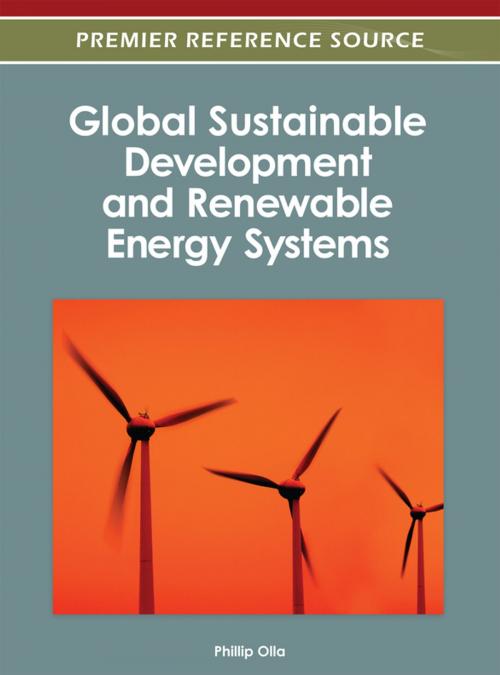Global Sustainable Development and Renewable Energy Systems
Nonfiction, Science & Nature, Technology, Agriculture & Animal Husbandry, Business & Finance, Industries & Professions, Industries| Author: | ISBN: | 9781466622807 | |
| Publisher: | IGI Global | Publication: | May 31, 2012 |
| Imprint: | Information Science Reference | Language: | English |
| Author: | |
| ISBN: | 9781466622807 |
| Publisher: | IGI Global |
| Publication: | May 31, 2012 |
| Imprint: | Information Science Reference |
| Language: | English |
Over the past decade, the use of Renewable Energy Technology (RET) has significantly increased around the globe. Technologies that once were considered experimental are now being deployed on commercial scales at phenomenal rates, delivering cost-effective substitutions for conventional, fossil fuel-based systems that cause problems including greenhouse gas emissions, expensive operating costs, and global pollution. But these new systems come at a costly rate, and because of this, officials must review their overall efficiency and effectiveness. Global Sustainable Development and Renewable Energy Systems pushes through the boundaries of current research to introduce the concept of an energy management information system, exploring the role of energy for sustainable development. This book goes into great detail describing the benefits of these systems for organizations, focusing on corporate sustainability initiatives and activities to combat climate change. Research presented in this publication includes modeling techniques, software applications, and case studies that reveal how renewable energy sources such as wind, solar, and biomass fuel can have a significant implications for both operating costs and environmental impacts.
Over the past decade, the use of Renewable Energy Technology (RET) has significantly increased around the globe. Technologies that once were considered experimental are now being deployed on commercial scales at phenomenal rates, delivering cost-effective substitutions for conventional, fossil fuel-based systems that cause problems including greenhouse gas emissions, expensive operating costs, and global pollution. But these new systems come at a costly rate, and because of this, officials must review their overall efficiency and effectiveness. Global Sustainable Development and Renewable Energy Systems pushes through the boundaries of current research to introduce the concept of an energy management information system, exploring the role of energy for sustainable development. This book goes into great detail describing the benefits of these systems for organizations, focusing on corporate sustainability initiatives and activities to combat climate change. Research presented in this publication includes modeling techniques, software applications, and case studies that reveal how renewable energy sources such as wind, solar, and biomass fuel can have a significant implications for both operating costs and environmental impacts.















